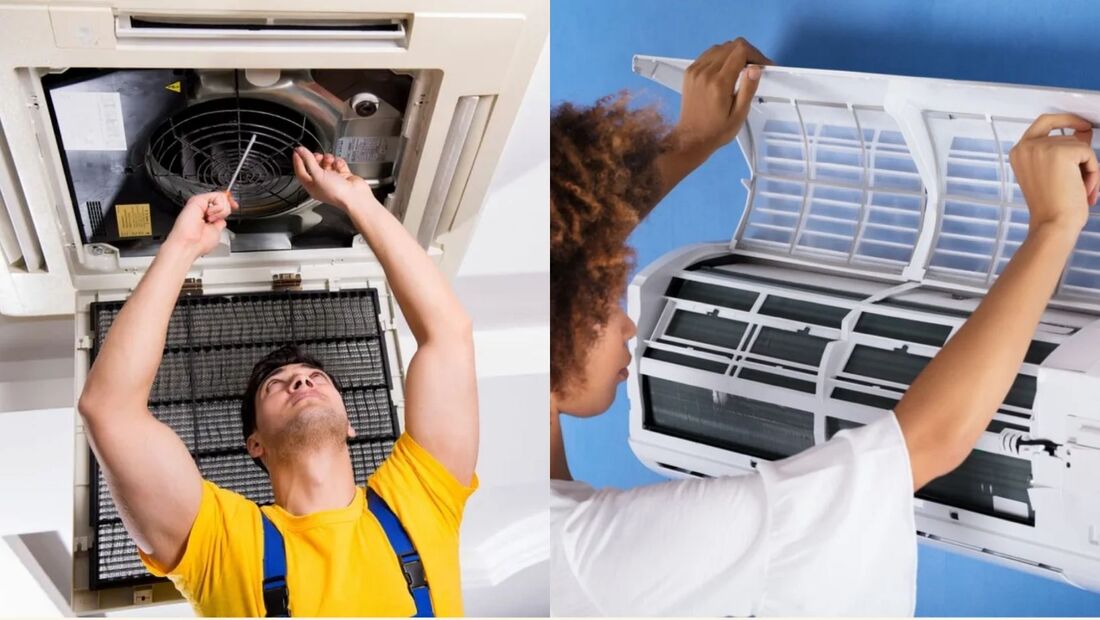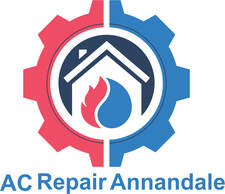|
Is your air conditioner failing to keep your house cool despite running continuously? It can be frustrating to deal with a malfunctioning AC unit, especially during hot summer days. Before you start sweating over the thought of expensive repairs or replacements, try these top 10 tips to troubleshoot and potentially fix your AC woes. 1. Check the ThermostatOften, the culprit behind an AC not cooling adequately is a simple oversight with the thermostat. Ensure that it's set to the correct temperature and switched to the cooling mode. Sometimes, a dead battery or faulty wiring can also cause thermostat issues. Adjust the Temperature SettingsEnsure the thermostat is set to a temperature lower than the current room temperature to activate cooling. 2. Clean or Replace Air FiltersClogged or dirty air filters can restrict airflow, making it harder for your AC to cool effectively. Check your filters regularly and clean or replace them as needed, typically every 1-3 months. Cleaning the FiltersUse a vacuum cleaner or gently wash the filters with mild soap and water. Allow them to dry completely before reinstalling. 3. Inspect the Condenser CoilsDirty or obstructed condenser coils can hinder heat transfer, reducing the efficiency of your AC system. Inspect the outdoor unit and clean the coils if they appear dusty or covered in debris. Cleaning the Condenser CoilsUse a coil cleaner or a mixture of water and mild detergent to gently scrub away dirt and grime. Rinse thoroughly and let dry before turning the unit back on. 4. Ensure Proper AirflowCheck for obstructions around both the indoor and outdoor units that may impede airflow. Trim back any foliage or clear away debris such as leaves or branches. Removing ObstructionsKeep at least two feet of clearance around the outdoor unit to ensure adequate airflow. 5. Check for Refrigerant LeaksLow refrigerant levels can prevent your AC from cooling efficiently. Look for signs of refrigerant leaks, such as hissing noises, ice buildup on the refrigerant lines, or decreased cooling performance. Detecting Refrigerant LeaksConsult a professional HVAC technician to locate and repair any refrigerant leaks safely. 6. Examine the CapacitorA faulty capacitor can cause the compressor or fan motor to malfunction, leading to poor cooling performance. Have a technician test the capacitor and replace it if necessary. Testing the CapacitorUsing a multimeter, check the capacitance and resistance of the capacitor to determine if it's functioning properly. 7. Inspect the Evaporator CoilsOver time, evaporator coils can accumulate dirt and debris, reducing their ability to absorb heat from the air. Inspect the coils and clean them if necessary to improve cooling efficiency. Cleaning the Evaporator CoilsA malfunctioning compressor can significantly impact the cooling capacity of your AC system. Have a professional technician test the compressor and replace it if needed. 8. Test the CompressorA malfunctioning compressor can significantly impact the cooling capacity of your AC system. Have a professional technician test the compressor and replace it if needed. Checking Compressor FunctionalityMeasure the compressor's voltage and current draw to ensure it's operating within the manufacturer's specifications. 9. Consider Professional HelpResearch reputable HVAC companies in your area and schedule a service appointment for a thorough inspection and repair. Hiring a ProfessionalResearch reputable HVAC companies in your area and schedule a service appointment for a thorough inspection and repair. 10. ConclusionDon't let a malfunctioning AC system leave you sweating this summer. By following these top 10 tips, you can troubleshoot and potentially fix common issues causing your AC not to cool properly. Remember to perform regular maintenance to keep your AC running smoothly and efficiently. Frequently asked questions (FAQ)1. How often should I replace my air filters?Air filters should typically be replaced every 1-3 months, depending on factors such as usage and indoor air quality. 2. What should I do if I detect a refrigerant leak?If you suspect a refrigerant leak, it's essential to contact a professional HVAC technician to safely locate and repair the leak. 3. Can I clean the evaporator coils myself?While it's possible to clean the evaporator coils yourself, it's essential to take proper precautions and avoid damaging the coils. Consider hiring a professional for this task if you're unsure. 4. How can I improve airflow around my outdoor AC unit?Ensure that there's at least two feet of clearance around the outdoor unit and remove any obstructions such as foliage or debris. 5. What should I do if my AC compressor is faulty?If your AC compressor is malfunctioning, it's best to contact a professional HVAC technician to diagnose the issue and recommend the necessary repairs or replacements.
0 Comments
|
AuthorWrite something about yourself. No need to be fancy, just an overview. Archives
June 2024
Categories
All
|
Local Service AreasAnnandale, VA
Fairfax, VA North Springfield, VA West Falls Church, VA Burke, VA Falls Church, VA Hours of Operation Monday - 9:00 AM - 6:00 PM Tuesday - 9:00 AM - 6:00 PM Wednesday - 9:00 AM - 6:00 PM Thursday - 9:00 AM - 6:00 PM Friday - 9:00 AM - 6:00 PM Saturday - 9:00 AM - 6:00 PM Sunday - Close |
Navigation |
ServicesAC Unit Replacement
AC Unit Repair Furnace Repair AC Maintenance Emergency AC Service Commercial Rooftop Unit Commercial AC Maintenance Apartment AC Repair Commercial HVAC Installation Water Heater Repair Air Quality Service Air Conditioning Repair Air Conditioning Maintenance Air Conditioning Installation Air Conditioning Replacement Air Conditioning Components Heating System Repair Heating Installation Heating System Maintenance Boiler Services Furnace Repair Heat Pump Repair |
Contact usAC Repair Annandale
3906 Millcreek Dr. Annandale, VA 22003 (571) 999-7227 |


 RSS Feed
RSS Feed
